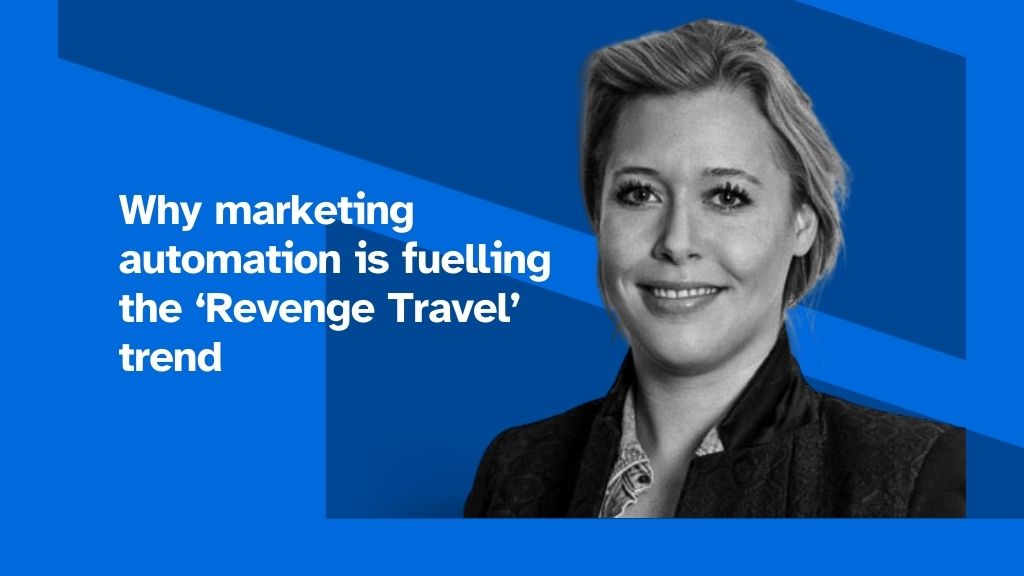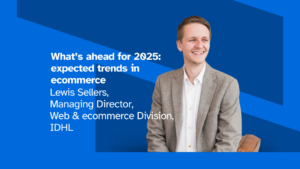With research showing that 81% of customers abandon bookings before completion, the global travel industry is missing out on a large group of travellers. Within the industry boom there has been an uplift in travel volume, yet the post-pandemic thirst for ‘revenge travel’ has still yet to be quenched. Juliette Aiken, CMO at Dotdigital, explains how using marketing automation as a secret weapon can help reclaim abandoned bookings and fortify customer loyalty.
Revenge travel isn’t done yet. The trend, which sees people making up for time lost during the pandemic by travelling now instead, has led to increased spending on travel experiences in recent years. That’s helped the industry regain its strength, with forecasts predicting it will account for over 11% of global GDP by 2030.
As a result, that presents a significant opportunity for marketers to not only drive sales but also enhance customer engagement and retention through targeted, personalised marketing strategies. The best way to do that is by using automation.
How to boost travel marketing with automation
Use AI-powered marketing intelligence
Advanced AI tools are already offering big benefits in marketing. They provide deep insights into consumer behaviour, streamline marketing operations, and enable the creation of effective, personalised campaigns. Predictive analytics play a pivotal role here, helping marketers identify optimal messaging, timing and channels for targeting specific demographics. This targeted approach not only boosts engagement rates but also raises overall ROI by optimising campaign expenditures.
Define and understand target audiences
Understanding your audience is fundamental in any marketing strategy. Being able to analyse potential customer preferences and behaviours allows marketers to tailor their content and promotions. By identifying interests in particular destinations, activities or packages, marketers can personalise their outreach, significantly increasing the relevance and effectiveness of their communications. Identifying potentially high-value customers early in their interaction can also lead to targeted initiatives such as enrolling them in elite VIP programs, which offer special benefits and encourage long-term brand loyalty.
Build a recognisable brand identity
A strong, distinctive brand identity is essential for building trust and recognition in the competitive travel market. A coherent visual and verbal identity, including a unique company name, logo, tagline and colour scheme, helps solidify the brand in consumers’ minds. And this can help reduce booking abandonment, as a recognisable and trusted brand can reassure customers during the payment process. Using analytics to identify potential abandonment and promptly addressing concerns through targeted communications can also effectively convert hesitations into bookings.
Strengthen your online presence
In today’s digital age, a robust online presence is crucial. Ensuring that all digital touchpoints, including websites, social media and online advertisements, are consistent can dramatically enhance visibility and customer interaction. An engaging, informative website that highlights unique travel experiences and differentiates the company from competitors is key to capturing customer interest. You can also further improve the browsing experience by suggesting relevant content and offers based on user behaviour, encouraging continued engagement and conversion.
Diversify content across multiple channels
Distributing engaging content across various platforms such as websites, blogs, emails, social media, podcasts and videos helps reach a wider audience and create multiple engagement touchpoints. Regular content updates keep the brand top of mind and improve SEO scores. Using marketing automation to manage and coordinate these efforts ensures a cohesive strategy that aligns with overall business goals, providing a seamless customer experience.
The advantages of a personalised, automated marketing strategy
Data shows that personalised marketing can lead to a 15% increase in transactions, with customers far more satisfied if their individual preferences are met. And automated tools allow for the delivery of this personalised marketing, making it far easier to offer customised travel experiences to individual consumers.
With marketing automation, agencies can streamline processes, tailor customer interactions, and manage campaigns more efficiently, ensuring each traveller feels uniquely appreciated. Beyond boosting sales, this strategic approach builds lasting relationships with customers, promoting a durable recovery and future growth for travel agencies.
By effectively using marketing automation, travel marketers have the opportunity to transform the challenge of revenge travel into a business advantage, creating a powerful impetus for sustained growth in a revitalised travel industry.








